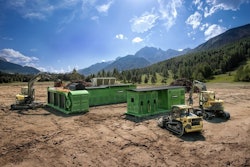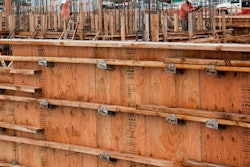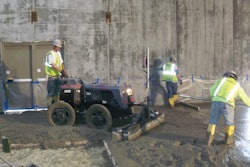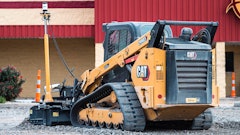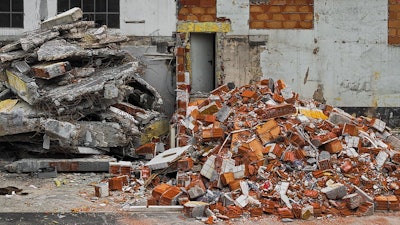
By Erich Lawson, Compactor Management Company
Did you know that in 2017 the building, renovating, or destruction of structures generated 569 million tons of construction and demolition waste in the United States alone? It is time to understand the importance of recycling to save the landfills from overflowing with debris.
Sources of construction waste:
- Design alterations - If the layout of the structure changes during the process of construction, the excessive material bought earlier ends up being unused and wasted.
- Procurement - Due to the absence of clearly defined requirements, improper procurement procedure raises the costs of waste and its environmental impact.
- Material handling - Incorrect handling of the ordered materials leads to damaged goods. These are basically a waste even before the actual construction.
- Operation - Mistreating supplies during the construction process also generates a lot of waste. Prevention should include efficient management of the same.
- Residual - Inadequate planning leads to an excessive quantity of the construction supplies being ordered and damaged on site. The inability to recycle or reuse these omits them as residual waste.
- Other - Additionally, there are other inaccurate actions undertaken during or after construction, which lead to vast quantities of the materials getting wasted.
These below-mentioned construction methods will help you prevent reusable materials from ending up in the landfill.
- Order the right amount of materials - Make sure there is a comprehensive plan which specifies the needed amount of inventory before beginning construction. Use this planning to account for potential waste.
- Recycle if not reusing - If you figure difficulty in sorting out trash, use easily accessible recycling equipment. Ask the workers to use recycling bind to segregate the waste effectively. Sinks, baths, countertops or metal, cardboard, paper, plastics, etc. should be recycled Tip: If this is a short term project, it’s better to lease or rent the equipment from your local waste management and recycling equipment provider company.
- Plan ahead - Beginning with a clear mind of having separate sorting for different types of elements will eliminate additional hassles. The project manager should ensure a proper organization to be in place to reduce wastage of materials.
- Reduce construction errors - Calculation mistakes leading to wastage are okay up to a certain threshold. If the crew is consistently using wrong measures, increasing the demand from clients for replacement, understand what is going wrong. That will save a lot of material from ending up in the trash.
- Try out new building methods - Research has shown that replacing waste-generating plywood and lumber with the long-lasting modular metal forms to build concrete structures reduces waste significantly. Metal forms can be recycled and reused.
Importance of Recycling
- It reduces the need for more supplies - Working with a plan lets you know the precise amount of recycled material produced during the project. That will, in turn, reduce waste generation, and make the project cost-effective.
- Diminishes transportation and production costs - The more unplanned materials you order, the more it is going to cost you in terms of procurement and delivery. Recycling will save you from this trouble.
- Reuses waste - Isn't it better if the scrap from one project is used as an adequate supply for another, rather than ordering a new batch? That saves the landfills from filling up, making the construction process sustainable.
What factors inhibit recycling?
- Absence of recycling equipment or facilities near the construction sites
- Inadequate usage of relevant technology
- Lack of awareness
Remember that planning and suitable execution of the process will lead to effective construction waste management.
Erich Lawson is passionate about saving the environment through effective recycling techniques and modern innovations. He works with Compactor Management Company and writes on a variety of topics related to recycling, including tips and advice on how balers, compactors and shredders can be used to reduce industrial waste. He loves helping businesses understand how to lower their monthly garbage bills and increase revenue from recycling.



